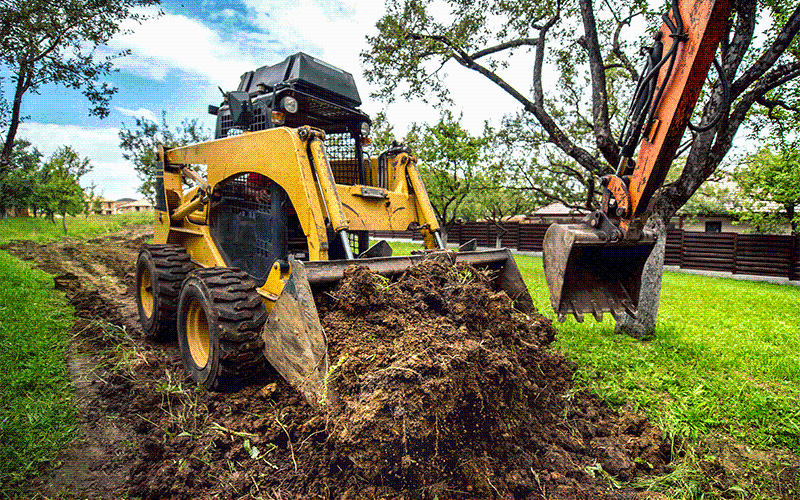
Decarbonising Non-Road Mobile Machinery: What it Means for the Landscaping Industry
The UK government has published a detailed summary of responses to its call for evidence on decarbonising non-road mobile machinery (NRMM), which includes the essential tools and equipment that power the professional landscaping industry. This encompasses everything from mowers and loaders to excavators and compactors—machinery critical to delivering high-quality projects efficiently and sustainably.
The summary reflects the diverse perspectives shared by stakeholders and highlights the opportunities and challenges ahead. It’s essential reading for landscaping professionals who rely on NRMM to understand how potential changes might shape their operations and the future of the industry.
Key Insights from the Summary
Unique Operational Contexts
The government acknowledges the diverse use of NRMM across industries, including in remote and rural areas where infrastructure like charging points or fuel alternatives may be limited. This recognition is crucial for landscaping professionals who often work in variable and challenging environments, from urban parks to countryside estates.
Sustainability in Equipment Use
Many stakeholders emphasised the long lifespan of NRMM, with machinery often being repaired, remanufactured, and resold multiple times. For landscaping businesses, this lifecycle management is a cornerstone of cost-efficiency and sustainability. Any future policy changes must consider these practices to avoid unintended disruptions.
Challenges of Decarbonisation
Technological Gaps: The summary highlights a lack of readily available low-carbon alternatives for many types of machinery, which could delay the industry’s transition.
Infrastructure Needs: Significant investment in infrastructure—such as charging stations for electric equipment or supply chains for alternative fuels—is necessary.
Cost Implications: Many respondents raised concerns about the financial burden of upgrading to greener technologies, particularly for small and medium-sized enterprises (SMEs).
These challenges are especially relevant to landscaping professionals, where the breadth of equipment used varies greatly, and new technologies must match the versatility and reliability of traditional machinery.
What This Means Members
As an industry that relies heavily on NRMM, landscaping businesses will be directly affected by the policies that emerge from this consultation process. While there are clear benefits to decarbonising machinery—such as reduced emissions and potential long-term savings—it’s equally important to ensure that the transition is practical and affordable for all businesses.
How We’re Supporting You
Monitoring Policy Developments: We are actively reviewing the government’s findings and tracking subsequent policy proposals to ensure they align with the needs of our sector.
Advocacy on Your Behalf: We’re working with policymakers in Government Departments to highlight the critical role NRMM plays in landscaping and the specific challenges faced by professionals in adopting low-carbon alternatives and fuel usage.
Keeping You Informed: Regular updates and guidance will be provided to members as developments unfold, helping you navigate changes and seize opportunities where they arise.
Get Involved
The Association encourages members to review the summary of responses and consider how these issues may affect their operations. Your input is vital in shaping the industry’s future.
The summary can be accessed here. If you’d like to share your views or contribute to the Association’s ongoing discussions with government, please contact us.
Together, we can ensure the professional landscaping industry continues to thrive while supporting the UK’s ambitious environmental goals.

